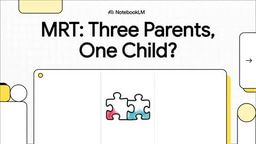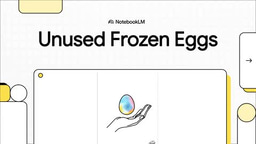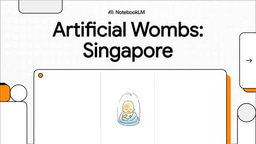Egg Freezing Subsidies and Other Financial Assistance - Public Policy Recommendations for Singapore
Published in Social Sciences, Pharmacy & Pharmacology, and Public Health
Please also see the slide presentation video:
In Singapore, there are currently no government subsidies for elective egg freezing. While the procedure is permitted for women aged 21-37, regardless of marital status, it is considered an elective procedure and thus not eligible for financial assistance or subsidies such as MediSave or co-funding, according to the Ministry of Health (MOH). However, some employers may offer benefits or subsidies for fertility treatments, including egg freezing. Additionally, couples undergoing IVF can potentially tap into government co-funding and CPF MediSave for the treatment itself if they choose to use their frozen eggs.
Nevertheless, based on current sociocultural dynamics, Singaporean women are increasingly delaying marriage and childbearing, but face declining fertility with increasing age. The Singapore government should therefore tweak public healthcare policies to help women cope with the high costs of elective egg freezing for fertility preservation.
There are several options available to help women cope with the high costs of elective egg freezing, although some of these options come with significant caveats and ethical considerations. Here are some possible ways that the Singapore government can financially assist elective egg freezing patients:
- Direct Government Subsidies: While direct government subsidies for egg freezing are considered difficult to justify because the procedure is non-essential for health or life, the idea of state-sponsored elective egg freezing has become a trending topic globally, with countries like South Korea, Australia, Israel, Cyprus, Japan, and Taiwan starting to subsidize it for their female citizens. Many Singaporean women would like the government to follow these examples to enable more equitable access and boost the country's birth rate. Such subsidies could incentivize women to freeze their eggs at younger ages, when egg quality is optimal, thereby increasing their chances of future reproductive success. If the Singapore government were to consider offering public subsidies for elective egg freezing, stringent eligibility criteria must be imposed to justify such spending:
◦ Making subsidies available only at IVF centers in public hospitals, but not those in the private healthcare sector.
◦ Restricting subsidies only to unmarried women. Married women should instead be directed to use currently available IVF subsidies for freezing embryos with their husbands, instead of unfertilized eggs. This is because embryos survive the freezing process much better than unfertilized eggs.
◦ Requiring subsidized patients to pledge to refund the subsidy or donate unused frozen eggs to other patients in need, in case these are not eventually used for IVF treatment.
◦ Setting a lower age limit for patients receiving subsidy (e.g., 32 years old), as compared to the general age criteria of 37 years old that applies to all egg freezing patients.
◦ Requiring stringent fertility health checks to confirm ovarian health and a good yield of eggs.
◦ Barring subsidized patients from pursuing single motherhood by exporting frozen eggs for sperm donor IVF overseas.
- Allowing Utilization of CPF Medisave (the national pension fund): The government could consider permitting the use of CPF Medisave for elective egg freezing, similar to how it is allowed for IVF treatment in Singapore. Many single women would likely want to use their CPF MediSave accounts to fund the procedure, as it is highly expensive. However, it can be argued that using CPF MediSave for social egg freezing may be unethical, cost-inefficient, and wasteful. Arguments against the use of CPF MediSave for elective egg freezing include:
◦ It is an elective, non-essential procedure based on personal life choices, potentially depleting funds needed for future medical contingencies, especially in old age.
◦ It involves a deliberate and willful creation of a medical situation for career pursuits, unlike involuntary medical conditions or occupational hazards.
◦ It may be too cost-inefficient due to relatively low success rates (2-12% per frozen egg according to ASRM; only about one in five IVF cycles are successful with own frozen eggs according to HFEA) and the need for multiple cycles, potentially rapidly depleting MediSave funds.
◦ Most women who freeze their eggs do not eventually use them, with studies showing only a small percentage returning to use them or giving birth with their frozen eggs.
- Permitting "Freeze and Share" Schemes: The government could consider permitting "Freeze and Share" schemes, where infertile IVF patients heavily subsidize the medical fees of egg freezers in return for donating some of their eggs (before freezing). This scheme, already operating in countries like the USA and UK, would incur no additional costs to government coffers as subsidies come from recipient patients. It could also help overcome the persistent shortage of egg donors. However, there are numerous ethical pitfalls associated with such schemes:
◦ Undue financial inducement: Subsidies may entice healthy women to undergo an invasive procedure with risks like ovarian hyperstimulation syndrome (OHS), blurring their judgment.
◦ Genetic connection: Women may later realize they value the genetic connection to donor offspring more than anticipated.
◦ Asynchronous nature: Donors would not know if their frozen eggs will attain reproductive success in the future, while being unsure about the existence of offspring born from their donation. Donated eggs often have higher success rates as they are typically not frozen.
◦ Psychological distress: Women who fail to conceive with their own frozen eggs might suffer immense psychological problems due to the possibility of unknown donor offspring.
◦ Selectivity and market forces: Such programs can be highly selective, favoring donors with desirable traits (e.g., high education, good jobs, beauty standards), potentially excluding lower-income women and those with less-desirable traits.
◦ Outdated donor anonymity laws: Singapore's donor anonymity laws create ethical problems, as donor-conceived offspring have inherent rights in many developed countries to know their donor's identity and medical history. This also increases the risk of accidental incest. The advent of DNA testing makes donor anonymity obsolete, risking unexpected contact between donors and offspring.
◦ Conflicts of interest: Fertility clinics and doctors may have conflicts of interest, potentially aggressively advertising subsidies or engaging in covert egg trading and profiteering by marking up fees.
- Providing Low-Interest Rate Loans: The government can consider providing low-interest rate loans to women freezing their eggs, similar to current government loans for university tuition fees and public housing that are pegged to CPF interest rates.
- Encouraging Corporate or Company Sponsorship: The government could encourage local companies to sponsor elective egg freezing for their female employees as a corporate perk to attract and retain human capital. The Singapore Government itself could also lead by sponsoring egg freezing for female civil servants. This has gained media attention as a step towards gender equality. Companies may pursue this to attract/retain talent, enhance corporate image, and potentially encourage employees to delay childbearing. Nevertheless, there are compelling arguments against corporate sponsorship:
◦ It may interfere with patient autonomy and decision-making, akin to enticing or abetting healthy women to undergo a risky, invasive, and non-medically necessary procedure.
◦ It could create subtle pressure for women to delay childbearing or choose egg freezing over maternity leave, potentially impacting promotions or layoffs.
◦ It might encourage false hope due to the low success rates of egg freezing, which is often misleadingly portrayed as an "insurance policy" rather than a "lottery ticket".
◦ It could imply that women "owe" their employers and may affect their personal life choices, such as embarking on parenthood after finding a partner.
◦ It may be a bad human resources practice, potentially contravening equal pay principles by providing a unique benefit to selected female employees.
◦ It might damage camaraderie and collegiality if only high-value and high-ranking female employees receive egg freezing benefits, causing resentment among others.
◦ It could send the wrong signal that the company workplace is not conducive for pregnancy, motherhood, or work-life balance, damaging the corporate image.
- Permitting Reimbursement or Refund for Donation of Unused Surplus Frozen Eggs: The government could consider allowing egg freezers who donate their unused frozen eggs to be refunded medical fees by recipient IVF patients. This is based on the argument that it is merely a reimbursement for medical fees already spent, not commercial egg trading or undue financial inducement. However, it can be strongly argued that such compensation is unethical because:
◦ It can trespass on the donor's autonomous decision-making, particularly if women are emotionally vulnerable and mentally stressed, when they are in a dilemma about what to do with their unused frozen eggs.
◦ It could exploit the prospective donor's vulnerable emotional state and desire to recoup financial losses, encouraging donations that might later be regretted.
◦ Medical professionals may have a conflict of interest in encouraging and soliciting donations from their former patients for the sake of earning additional medical fees. This could lead to abuse of the doctor-patient fiduciary relationship.
◦ It carries social and psychological issues for donors, including potential regret, accidental incest risk, and unexpected contact from unknown genetic offspring due to DNA testing advances.
◦ Restrictive criteria and varying compensation levels based on market demand (e.g., for certain races, ethnicities, or desirable traits) could lead to accusations of unfairness and discrimination.
References





Please sign in or register for FREE
If you are a registered user on Research Communities by Springer Nature, please sign in